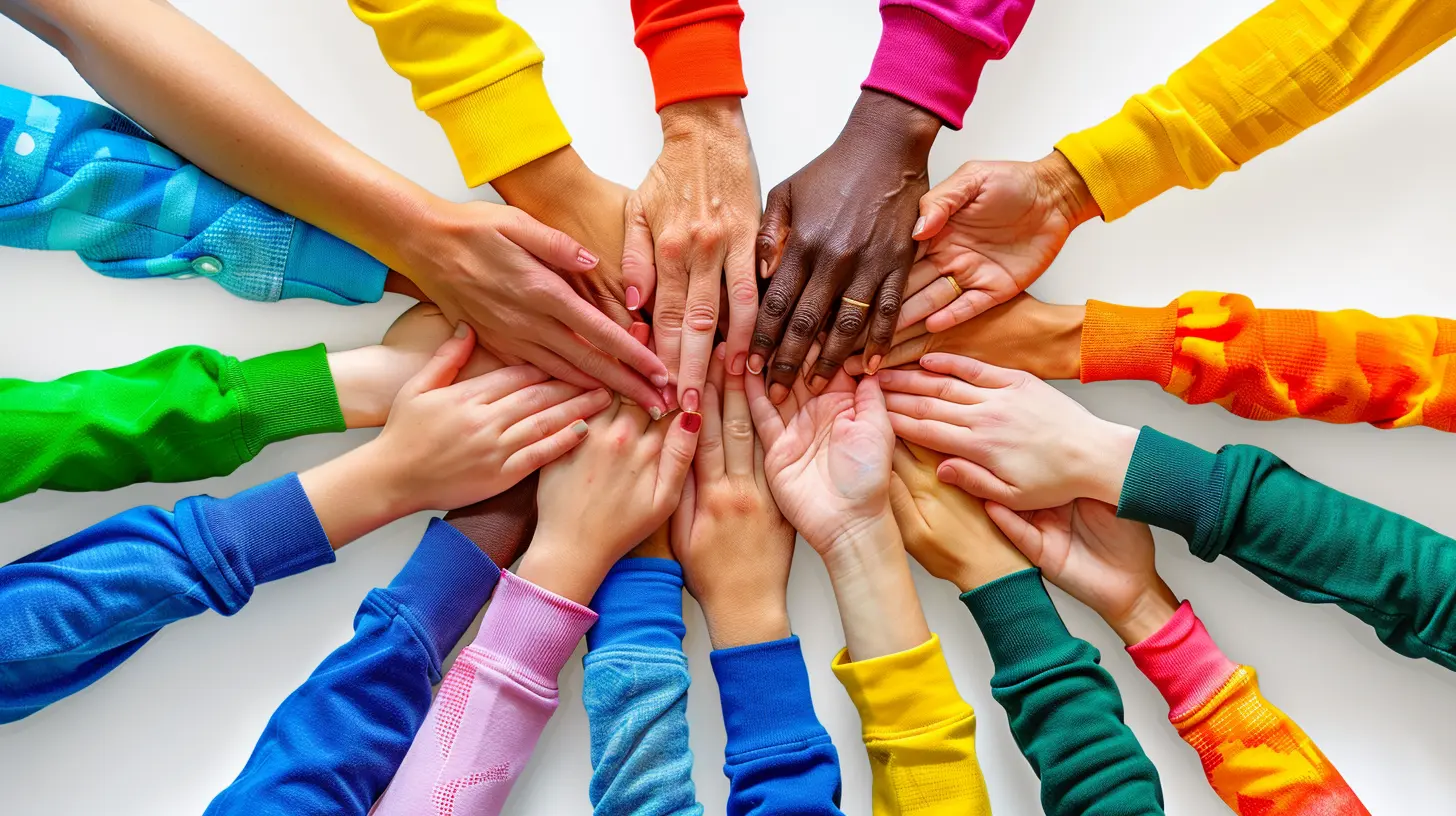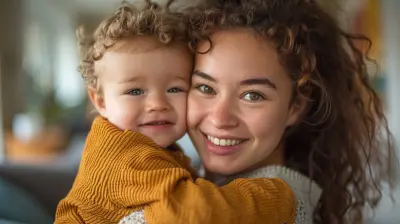Adoption Support Groups: Why You Need a Community
24 November 2025
Adoption is one heck of a journey — beautiful, yes, but also layered with challenges, questions, and emotional rollercoasters. Whether you're just starting to explore adoption or you're already knee-deep in parenting your adopted child, one thing is for sure: you shouldn't have to navigate this road alone.
That’s where adoption support groups come in. They're like the warm hug and high-five you didn’t realize you needed. A community that “gets it.” A group of people who’ve stepped into your shoes, walked those miles, and are more than happy to lend a hand (or an ear) along the way.
In this article, we're diving deep into why adoption support groups aren’t just helpful — they’re essential. So, grab a cup of coffee, get comfy, and let's chat about community, connection, and why surrounding yourself with people who understand adoption is a total game-changer.
What is an Adoption Support Group Anyway?
In plain English? It’s a safe space where adoptive parents, adoptees, and sometimes even birth parents gather (either online or in person) to share stories, advice, struggles, and victories.These groups might be led by professionals like counselors or social workers, or they can be peer-led by fellow adoptive parents who’ve been there, done that. Some are structured with specific topics or guest speakers, while others are more casual, like a group chat or monthly meetup.
And let’s be real — sometimes just knowing you’re not the only one going through something tough makes all the difference.
Why Does Community Matter So Much in Adoption?
Parenting by itself is tough. Parenting through adoption? You’re tossing in a whole set of additional dynamics: identity issues, attachment struggles, questions about birth family, trauma, developmental delays — and that’s just scratching the surface.1. You Don’t Have to Explain Yourself
Ever tried to vent to a well-meaning friend who just doesn’t get it?“Why can’t you just discipline them?”
“Don’t worry, they’ll outgrow it.”
“Oh wow, you’re so amazing for adopting.”
Yeah, those comments might come from a good place… but sometimes they feel like a slap. In adoption support groups, you’re talking to people who already understand. No explaining. No justifying.
They just... get it.
2. Real Advice from Real People
Sure, Googling is a thing — but reading 50 articles and forums at 1 AM isn't exactly comforting. Support groups offer real-life experience from people who have been through the exact same situations:- “Here’s what helped with our attachment issues.”
- “This is how we manage birth family visits.”
- “We tried therapy, here’s what worked.”
It’s like having a parenting cheat code, straight from the source.
3. Emotional Support That Keeps You Going
Adoption can stir up lots of emotions: joy, guilt, grief, love, confusion, relief, frustration — sometimes all in the same day.Support groups give you a space to feel your feelings without judgment. Crying, venting, celebrating, worrying — it’s all welcome.
Being seen and heard by others who truly understand is not just cathartic — it’s empowering.
Types of Adoption Support Groups
Not all groups look the same — and that’s the beauty of it. There’s something for everyone.1. Peer-Led Parent Groups
These are usually created by adoptive parents for adoptive parents. They might meet monthly at a local community center, or hang out in private Facebook groups or forums.They tend to be relaxed, with open discussions, Q&A, and lots of storytelling.
2. Professional-Led Groups
These may be organized by adoption agencies or mental health professionals and are a bit more structured. Topics might include:- Navigating open adoption
- Transracial adoption challenges
- Trauma-informed parenting
- Legal updates and resources
You might even get access to guest speakers and specialists.
3. Online Communities
For busy parents (which is, like, all of us), online groups are a lifesaver. Think Facebook groups, Reddit threads, or apps like Peanut and WISE.You can post a question at 3 AM and get a dozen helpful responses before breakfast.
4. Adoptee and Birth Parent Groups
Yes, support groups exist for everyone involved in adoption — and they’re just as important.Adult adoptees find healing and connection in shared identity. Birth parents can process grief, connect with others, and stay informed.
When all members of the adoption triad are supported, the entire community benefits.
What Do You Actually Talk About?
Short answer? Everything.Here are some common (and totally normal) topics that pop up in support groups:
- Attachment Issues: What happens when the bonding process isn’t automatic — and how to work through it.
- Identity and Race: Especially in transracial adoptions. How to raise culturally aware kids who feel proud of their story.
- Birth Family Relationships: Open adoption navigation, boundaries, and communication tips.
- School and Behavior Struggles: From IEPs to trauma-informed teaching — education is a hot topic.
- Talking About Adoption: How (and when) to tell your child their story in an age-appropriate way.
- Post-Adoption Depression: Yep, it’s a thing — and talking about it can be a game-changer.
- Celebrating Milestones: First steps, finalizations, birthdays — the little victories matter, and this is a place to shout them from the rooftops.
Real-Life Benefits of Joining a Support Group
Alright, so maybe you’re still on the fence. We get it — life’s full. Time is short. But let’s break down some real (and totally worth it) benefits:1. You’ll Feel Less Alone
Isolation is a sneaky monster. Support groups slap that monster in the face.Knowing there’s a village behind you? That changes the game.
2. You’ll Gain Confidence
First-time adoptive parents especially tend to second-guess everything. And why wouldn’t we? The stakes feel high.Seeing others tackle similar challenges reminds you that you can do this.
3. You’ll Get Better at Supporting Your Child
When you’re supported, your parenting improves. Period. You’ll learn tools, language, and strategies that make you more effective and more emotionally available for your child.4. You Might Make Lifelong Friends
Some of the strongest friendships are forged in the fires of shared experience. You might enter a support group looking for advice — and walk away with a best friend.How to Find the Right Group for You
Okay, you're sold. Now what? How the heck do you find the right group?🔍 Start Local
- Check with your adoption agency — they often run or partner with support groups.- Hospitals and community centers may also host parenting groups, including adoption-specific ones.
- Ask other adoptive parents — chances are, they’ll have a recommendation.
🌐 Go Online
- Facebook: Search for keywords like “Adoptive parents support” or “Transracial adoption group.”- Reddit: r/adoption has a pretty active and supportive community.
- Meetup: Great for finding local meet-ups or virtual chats.
- Adoption.com Forums: Tons of categories and threads.
☎️ Ask a Professional
If you're working with a therapist or social worker, ask them if they know of any groups. Many professionals have insider info on hidden gems that may not show up in your first Google search.Tips for Getting the Most Out of a Support Group
So you've found a group. High five! Now, how do you make the most of it?🎤 Be Honest
You don’t have to sugarcoat anything. This is the place to say, “I’m struggling,” and not feel judged.🤝 Share, But Also Listen
Your story matters, but so do others'. Listen with an open heart and you'll learn a ton — sometimes more than you expected.📅 Stay Consistent
Like anything, you get out what you put in. Attending regularly helps you build trust, friendships, and a rhythm that keeps you grounded.🔒 Respect Confidentiality
What’s said in the group stays in the group. It’s all about trust and creating a safe space for everyone.What If I’m Not a “Group Person”?
Totally valid. Not everyone loves group settings — especially if you’re introverted or just not into sharing your feelings in public.Good news? Community doesn’t have to mean sitting in a circle every Tuesday night.
Try:
- One-on-one coffee dates with another adoptive parent
- Email groups
- Private group chats
- Supportive blogs or podcasts
- Tele-support or virtual groups with optional video
The key is connection, not format. Find what feels good and go with that.
Final Thoughts: You Were Never Meant To Do This Alone
Adoption is a lifelong journey — not a one-and-done event. And just like parenting in general, it takes a village. But not just any village — one that understands the unique layers, emotions, and challenges that come with adoption.An adoption support group can be your lighthouse in the fog, your cheering squad on the sidelines, and your emergency lifeline at 2 AM.
So whether you're just starting out, finalizing papers, or ten years into parenting, finding your community isn’t a luxury — it’s a necessity.
You’ve got this — and there’s a whole group of people out there who’ve got you.
all images in this post were generated using AI tools
Category:
AdoptionAuthor:

Steven McLain
Discussion
rate this article
1 comments
Wendy McGhee
Adoption can be isolating; finding a support group is crucial. Connecting with others who share similar experiences offers understanding, resources, and encouragement. Don’t navigate this journey alone—community makes all the difference!
November 25, 2025 at 4:43 AM

Steven McLain
Thank you for highlighting the importance of community in the adoption journey! Support groups truly provide invaluable connections and resources.


